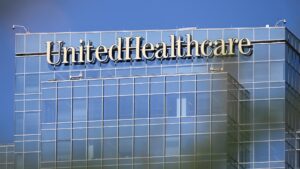UnitedHealthcare Appoints Tim Noel as New CEO: What’s Next for the Industry?
In a significant leadership change, UnitedHealthcare (UHC) has named Tim Noel as the new CEO, following the tragic and shocking death of former executive Brian Thompson. This move, announced on Thursday, highlights the ongoing evolution of one of the largest private health insurers in the U.S., and raises critical questions about security and policy reform within the healthcare industry.
A Veteran at the Helm
Tim Noel steps into this pivotal role with a wealth of experience. Having joined UnitedHealth Group in 2007, he previously led the company’s Medicare and retirement division. Under his leadership, this segment has expanded significantly, providing health insurance coverage to almost 14 million Medicare beneficiaries, effectively serving about one-fifth of the total Medicare population.
Noel’s deep understanding of the healthcare landscape will be crucial as UnitedHealthcare navigates turbulent waters in the aftermath of Thompson’s murder. The incident has spurred fury not only about safety issues for executives but has also ignited a broader debate around healthcare reform in America.
The Impact of Changing Dynamics
The murder of Brian Thompson has reverberated throughout the health insurance sector, triggering heightened security measures across the industry. Companies are increasingly altering their internal policies to protect their leadership teams. For instance, executive photos and personal information have been removed from various platforms, including UnitedHealth Group’s executive leadership page.
In addition to the concerns over safety, the healthcare sector is grappling with a balancing act of delivering quality care while maintaining profitability. With healthcare costs surging due to an influx of Medicare Advantage patients who delayed necessary treatments during the pandemic, insurance providers are under significant pressure to reform their business models to accommodate rising expenditures.
Medicare Advantage’s Evolving Landscape
The spotlight also shines on Medicare Advantage plans, which are instrumental to UnitedHealthcare’s strategy. Although these plans have been profit centers, the increase in medical costs associated with care, including hospitalization rates that have risen as seniors return for procedures, poses a financial challenge. As Noel transitions into his role, his expertise will be critical in addressing these rising costs while still prioritizing patient outcomes.
The Bigger Picture: Reform and Profits
UnitedHealth Group’s CEO, Andrew Witty, has echoed the concerns about the need for a functional healthcare system, calling for less complexity and lower costs. The current system, he argues, benefits from high prices, which could hinder the organization’s revenue streams if reforms lead to reduced pricing.
For investors and stakeholders watching from the sidelines, this dynamic invites a reevaluation of how for-profit healthcare businesses operate, especially as the public discourse on health equity and access becomes more pronounced.
What’s Next for UnitedHealthcare?
As Noel takes charge during this turbulent period, stakeholders will be closely monitoring how UnitedHealthcare adapts to changing consumer demands, regulatory pressures, and industry challenges. The company has already signaled strong revenue growth, with projections for 2024 estimating revenues between $450 billion to $455 billion, reflecting an 8% increase year-on-year.
At Extreme Investor Network, we aim to provide our readers not only with immediate updates but with deeper insights into how these developments shape investment strategies moving forward. Understanding the implications behind corporate decisions, like UnitedHealthcare’s succession, will be crucial as the healthcare sector navigates through complex challenges and strives for both profitability and reform.
Stay tuned to our blog for ongoing updates and insights into the shifting health insurance landscape and how it affects your investment outlook.

